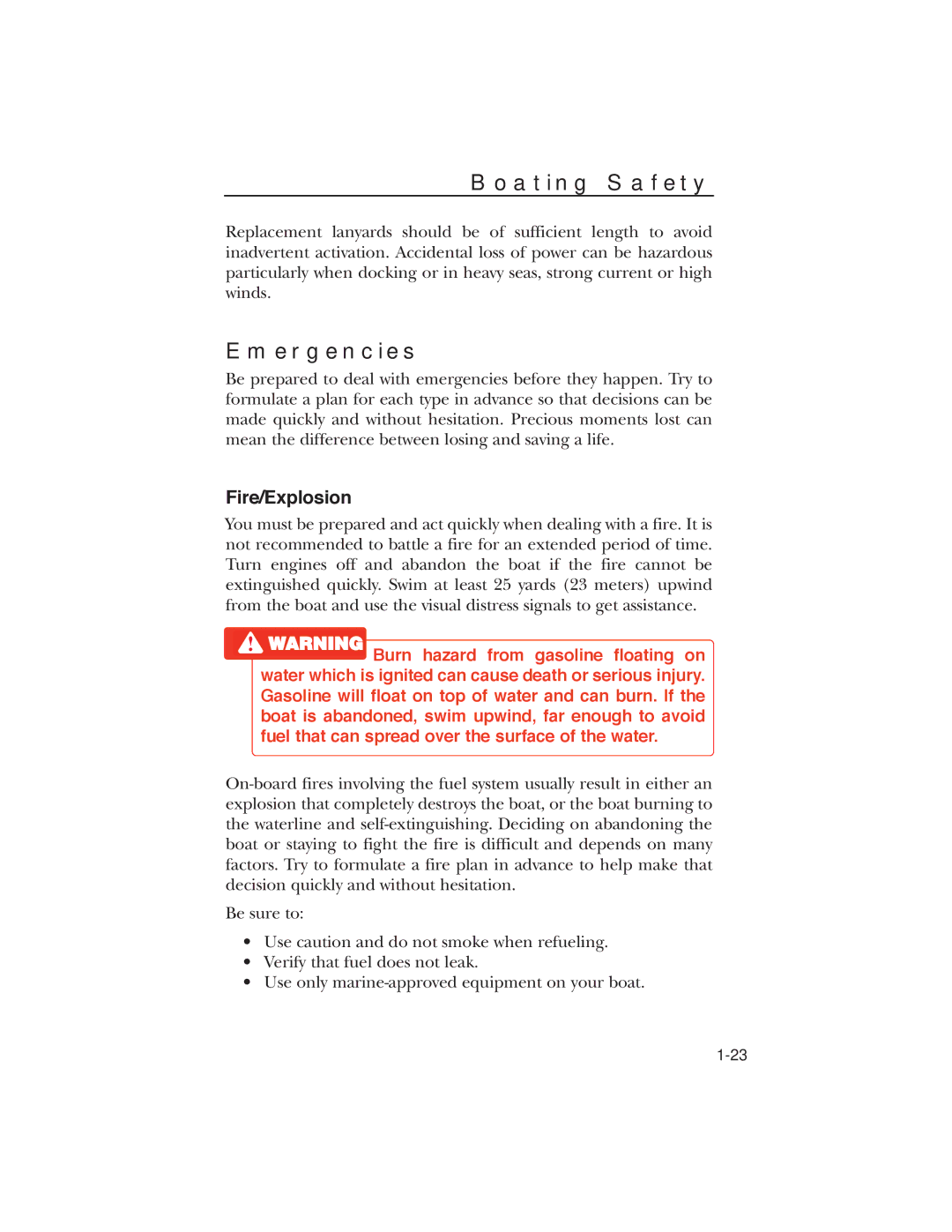
Boating Safety
Replacement lanyards should be of sufficient length to avoid inadvertent activation. Accidental loss of power can be hazardous particularly when docking or in heavy seas, strong current or high winds.
Emergencies
Be prepared to deal with emergencies before they happen. Try to formulate a plan for each type in advance so that decisions can be made quickly and without hesitation. Precious moments lost can mean the difference between losing and saving a life.
Fire/Explosion
You must be prepared and act quickly when dealing with a fire. It is not recommended to battle a fire for an extended period of time. Turn engines off and abandon the boat if the fire cannot be extinguished quickly. Swim at least 25 yards (23 meters) upwind from the boat and use the visual distress signals to get assistance.
!
Burn hazard from gasoline floating on water which is ignited can cause death or serious injury. Gasoline will float on top of water and can burn. If the boat is abandoned, swim upwind, far enough to avoid fuel that can spread over the surface of the water.
Be sure to:
•Use caution and do not smoke when refueling.
•Verify that fuel does not leak.
•Use only
